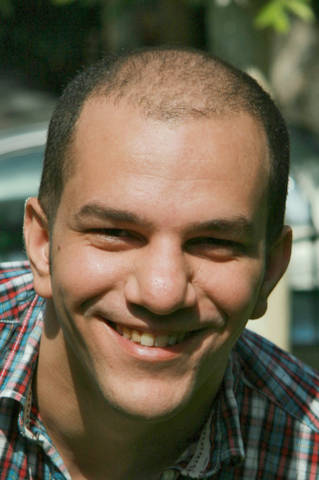Revolution: the ‘third way’ in Egypt
By Osama Diab
With little representation in official politics, Egypt's revolutionary forces must continue to create a political third way on the streets.
Friday 1 June 2012
Following the announcement of the official results of the Egyptian presidential elections on Monday, Tahrir square, the epicentre and the unofficial headquarters of the revolution, drew thousands of protesters who expressed their dissatisfaction that Ahmed Shafiq, Hosni Mubarak's last prime minister and Mohamed Mursi, the Muslim Brotherhood's candidate, would face each other in the final round. Many felt the outcome was predecided to give voters a choice between bad and worse.
The chants against both the military and the Brotherhood demonstrate that many Egyptians are not happy with the choice they have been left with. After all, the majority of Egyptians voted for candidates other than Morsi and Shafiq.
This regime-Brotherhood dichotomy has a relatively long history in Egypt. The overthrown president Hosni Mubarak mastered playing this card to help him stay in power for almost three decades. He demonised the Brotherhood while giving them some power to qualify them as a tangible threat. The state media machine cast them in the role of Egypt's political bogeyman while portraying the regime as the stable status quo.
Mubarak played the demon Brotherhood card until the last day of his rule. In his last interview with ABC's Christiana Amanpour a few days before he was forced to step down, he warned omniously that if he left office the Muslim Brotherhood would take power in Egypt.
This ornamental bipartisanship benefited both parties and they both have vested interests in maintaining this favourable status quo. This was evident and clear in their statements about the post-election protests against the results. They both described the protesters as pro-Hamdeen Sabahi (the candidate who came in third). Though there were protesters who had voted for Sabahi, I can tell you, as an eyewitness to the demonstration, that the protest had very little to do with the man himself, but casting it in this light gives the impression that the protesters are nothing more than a bunch of sore losers who have no genuine grievances.
Maintaining this regime-Brotherhood dichotomy is harmful. It stagnates Egypt's political life and hinders progress, while promoting the politics of fear. It also establishes a tradition of tactical voting “against” rather than “for”, with each side trying to convince the voter that they are the lesser evil.
This framework of politics puts very little pressure on the parties to deliver any actual results. In fact, both the regime and the Brotherhood presented no vision for ending the political deadlock and economic meltdown the country is experiencing.
In addition, the majority of Egyptians have expressed their rejection of this tired political formula, through both street politics and the ballot box. The problem is that the revolutionary votes were divided due to the lack of coordination and the lack of political and electoral experience. Despite all this, candidates who clearly represented the revolution won more then 40% of the votes.
Since this massive voting bloc has very little representation in official politics, it is left with no choice but to try to influence decision-making through street politics, lobbying and forming coalition. Eventually, it will evolve into some form of organised political force that can present a third choice and break the regime-Brotherhood dichotomy once and for all. Until this happens, people who are not happy with the choice they have in the run-off should boycott the elections. A very low turnout will embarrass the regime, take away some legitimacy from the next president and put more pressure on him to compromise. It will also encourage a new political force to emerge to win and represent this forsaken voting bloc.
Hope for an egalitarian society lies with pressure the revolution can exert from the grassroots, and its ability to consolidate and institutionalise in the near future. The revolution's principles of “bread, freedom and social justice” could constitute a viable third way in Egyptian politics and provide a counterbalance to the disastrous and divisive rightwing politics of the Islamists and the military-backed secular regime.

